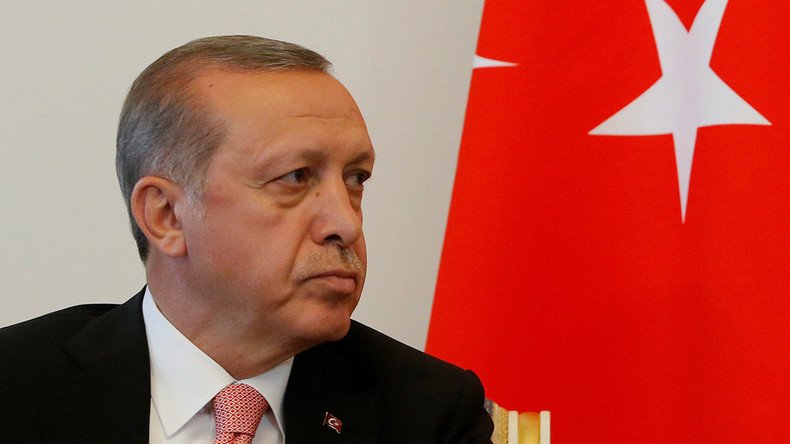‘Erdogan shift towards Islamist fundamentalists worries European liberals’

EU nations don’t want Turkey as a full member state, but rather they want a special relationship with the country, and keep it as a buffer zone between the Middle East, Adel Darwish, political commentator, historian and author told RT.
Guenther Oettinger, the European Commissioner for Digital Economy and Society, in his Tuesday interview to the Bild newspaper said that Turkey’s EU membership “is not realistic through the next decade.”
RT: Why do you think that European Commissioner specifically put an 'Erdogan-must-go' condition on Turkey's EU membership?
Turkey EU bid 'unrealistic throughout next decade' - European commissioner https://t.co/x04T83DQQUpic.twitter.com/qUr5Pe3pWW
— RT (@RT_com) 30 августа 2016 г.
Adel Darwish: I think you have to look at three different lines. The first line, the one subject that perhaps most of electorates in the European community, EU nations agree on: they don’t want a full membership of Turkey. The larger strategy is to have a special relationship with Turkey, but keep it as a buffer zone between other areas having borders with the Middle East: with Iran, Syria, Iraq, and countries like these. The second level is symbolic. It is a very short statement, and he is a low-ranking commissioner, but being German, because Germany is the main force that negotiates with Turkey. Third, you see the trends inside European countries, who are pro-Turkey, who want Turkey at least to have stronger links with Europe – are displeased with Erdogan. He has been shifting towards Islamist fundamentalist forces in the Middle East region, and I think that is worrying the liberal trends that support Turkey.
RT: Europe previously openly called for Syria's and Libya’s leaders to step down. Is this more about pressuring Erdogan himself, or appealing to the Turkish people to do something?
#EU-#Turkey migrant deal: #Ankara says it has other options, #Merkel not anxious https://t.co/F25Q5h6sMVpic.twitter.com/f0bIp5qv2P
— RT (@RT_com) 25 мая 2016 г.
AD: He wants – obviously one aspect is to gain popularity. He immediately after succeeding in suppressing the coup he went straight to see President [Vladimir] Putin, he went straight to Russia. He knew exactly where the strong force is, where he can get strong support from the Russian stable. That is one superpower with clear objectives in the region. Meanwhile, Europe doesn’t have a clear objective, whether it is with NATO; how many European leaders are working with NATO, are working for themselves, and so on. So he sees some kind of disunity; not a clear message coming from Europe. Europe’s plan…is not to admit Turkey fully.
RT: A number of European officials accuse Turkey of exploiting the migrant deal and 'blackmailing' Brussels trying to get visa-free travel. What are your thoughts on that?
AD: Well, during the campaign before the referendum on membership with the EU most people here said: “We wish the former [UK] Prime Minister [David] Cameron had the skills of Erdogan to deal with Europe and negotiate with Europe” He had a strong hand to play with the migrants. But whether he can actually see how many European leaders can honor the agreement he would reach – obviously Ankara will still use this as leverage. And it is very interesting what the German commissioner would say to them, because Erdogan was relying on their support. Chancellor [Angela] Merkel was the one who actually went to Ankara, and made the deal with him…
The statements, views and opinions expressed in this column are solely those of the author and do not necessarily represent those of RT.











